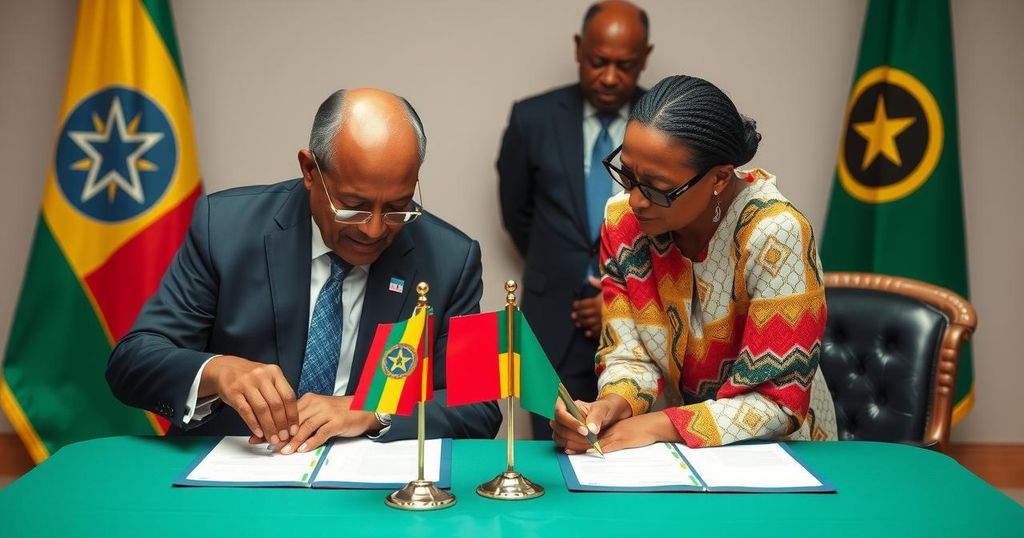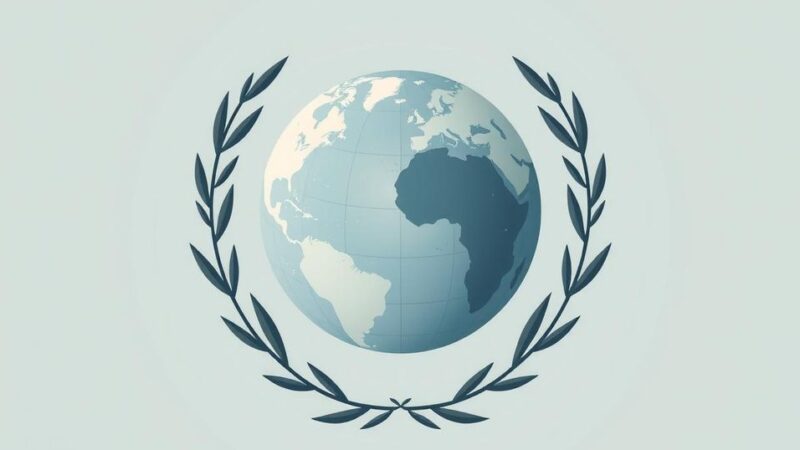On December 11, 2024, Turkey mediated a vital peace agreement between Ethiopia and Somalia, following a year of heightened tensions due to Ethiopia’s controversial MoU with Somaliland. The Ankara Declaration promotes cooperation and mutual progress, supported by international organizations. The agreement aims to stabilize the geopolitical landscape, allowing Ethiopia access to the Red Sea while addressing Somalia’s security challenges, despite domestic resistance and ongoing complexities from Somaliland’s status.
On December 11, 2024, a pivotal reconciliation agreement between Ethiopia and Somalia was attained through Turkey’s mediation, marking a significant step in regional diplomacy. The accord emerged from high-level discussions in Ankara, aiming to restore cooperation after a year marked by heightened tensions. Turkey’s role illustrates its increasing influence in the Horn of Africa, with the support of international bodies such as the UN and the US.
The discord between Ethiopia and Somalia stems from a contentious Memorandum of Understanding (MoU) signed by Ethiopia in January 2024 with Somaliland, an autonomous region within Somalia. This agreement involved Ethiopia establishing a naval base along Somaliland’s coastline, raising alarms in Somalia regarding potential recognition of Somaliland’s independence. The deteriorating relations led to a polarizing environment in which Somalia received military support from Egypt, Eritrea, and Djibouti, while Ethiopia garnered backing from Uganda and Kenya.
In response to the escalating crisis, Turkey initiated the ‘Ankara Process’ on July 1, 2024, aimed at fostering dialogue and cooperation between the adversarial nations. This diplomatic endeavor involved a series of discussions culminating in the Ankara Declaration. Under this declaration, both countries reiterated their commitment to sovereignty and territorial integrity, pledging to cultivate shared prosperity through bilateral agreements.
The Ankara Declaration has substantial implications for both nations. For Ethiopia, it facilitates crucial access to the Red Sea, essential for economic recovery following the Tigray war and ongoing unrest. It also creates an environment conducive to the economic objectives outlined in the US$ 3.4 billion deal with the IMF. Meanwhile, Somalia seeks to stabilize its security situation amidst threats from Al Shabaab, while reaffirming its commitment to peaceful conflict resolution, despite potential domestic resistance.
Additionally, the political aspirations of Somaliland complicate the reconciliation process. The newly elected President Abdirahman is deepening ties with Ethiopia, while discussions of US recognition of Somaliland may further entrench divisions. Such complexities necessitate careful management by Somalia’s leadership to foster national cohesion and consensus surrounding the agreement benefits.
Moreover, France is showing renewed interest in Ethiopia’s maritime ambitions, indicated by President Emmanuel Macron’s visit. Although previous efforts to bolster Ethiopia’s naval capabilities faced setbacks, this recent diplomatic engagement signals potential collaborative efforts ahead. France’s renewed involvement aligns with its strategy to enhance relations in light of diminishing influence in its traditional African strongholds.
Turkey’s mediation highlights its emerging role as a diplomatic actor in Africa, presenting itself as a reliable partner. However, the agreement’s success hinges on the commitment of both Ethiopia and Somalia to maintain open lines of communication and address potential violations of the pact. Continued international support and effective management of domestic dissent in Somalia will be critical in ensuring the stability and implementation of the Ankara Declaration.
The Ethiopia-Somalia relationship has historically been fraught with tension, particularly following Ethiopia’s controversial military and political maneuvers in the region. The signing of a Memorandum of Understanding with Somaliland intensified existing disputes, prompting Somalia to seek external assistance, primarily from regional allies. Cumulatively, these events set the stage for Turkey’s emerging role as a mediator, capitalizing on its diplomatic ambitions to enhance its influence in the Horn of Africa by facilitating constructive dialogue and peace agreements.
In summary, Turkey’s successful mediation in achieving the Ethiopia-Somalia peace agreement represents a significant advancement in regional diplomacy and stability. The Ankara Declaration lays the groundwork for renewed cooperation, economic partnerships, and the pursuit of shared security objectives. However, the overall success of this initiative will depend on the commitment of both nations to uphold their agreement and manage internal dissent, ensuring that peace replaces discord in the Horn of Africa.
Original Source: www.idsa.in






